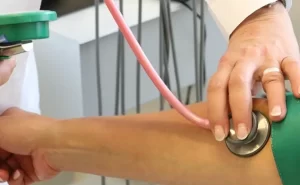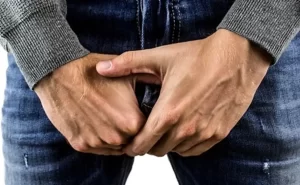Kegel Exercises: Are They Helpful for Preventing Premature Ejaculation?
There is some evidence that Kegel exercises may be beneficial for preventing premature ejaculation (PE). However, the evidence is still contradictory and varies from person to person. Premature ejaculation is a sexual disorder that males frequently experience. The inability to control ejaculation during sexual activity is a defining characteristic of this condition, which leads to sexual encounters that are unsatisfying for both partners. Additionally, Kegel exercises have been discovered to have the potential to be helpful in the management of premature ejaculation, even though there are various therapeutic options available for this problem.
From what we know, here it is:
Kegel exercises specifically target the muscles supporting the pelvic floor. These exercises entail contracting and relaxing the muscles supporting the rectum, bladder, and urethra. In most cases, women are advised to perform these exercises to assist in strengthening the muscles located on the pelvic floor following childbirth or to treat urine incontinence. On the other hand, recently conducted research has demonstrated that Kegel exercises can also be beneficial for men in the management of premature ejaculation.
It is believed that strengthening the pelvic floor muscles can improve the control of the muscles engaged in ejaculating.
According to the findings of one study, men who engaged in Kegel exercises for eight weeks enjoyed considerable gains in their capacity to exert control over their ejaculatory function. According to the findings of another study, men who utilized Kegel exercises in conjunction with other treatment options, such as behavioral therapy or medication, had more significant results in managing premature ejaculation than those who simply used one treatment option.
There is a lack of complete comprehension regarding the mechanism that helps Kegel exercises in the treatment of premature ejaculation. On the other hand, it is believed that strengthening the pelvic floor muscles can improve the control of the muscles engaged in ejaculating. Consequently, this can result in enhanced sexual function and a sense of fulfillment for both lovers simultaneously.
Possible advantages include:
The Kegel exercises strengthen the muscles around the urethra, which can help manage ejaculatory reflexes. They also strengthen the muscles on the pelvic floor.
As your muscles become stronger, you may be able to delay or avoid ejaculation for a longer length of time. This will allow you to improve your ejaculatory control.
There is a correlation between increased control and increased sexual satisfaction, which can result in more pleasurable sexual experiences for both partners.
However, it is essential to take into consideration:
Although some studies demonstrate good impacts, others demonstrate low or no benefit. Effectiveness may be contingent on the severity of the PE and individual characteristics.
Kegel exercises require a time commitment because they must be performed regularly and consistently to reap the potential advantages. It usually takes many weeks or months to see the effects.
It is not a panacea: Kegel exercises may not be sufficient for every PE incidence, and extra treatment may be necessary for certain underlying medical or psychological conditions.
Before attempting Kegel exercises for physical education:
You should seek the advice of a medical professional. They can identify the reason for your PE and assess whether Kegel exercises suit your situation.
Master the appropriate technique: Kegel exercises may be performed correctly, and a healthcare expert can show you how to do them so that you can maximize their effectiveness and minimize stressing your muscles.
Keep a steady and patient attitude. Time and effort are required for effects to become apparent. Aim to complete at least three sets of ten to fifteen repetitions many times each day.
Always remember that Kegel exercises are a noninvasive and risk-free solution that should be investigated with the appropriate assistance. However, they may not be the only solution for everyone. When it comes to effectively controlling PE, it can be essential to seek the counsel of professionals and investigate alternative treatments.
It is necessary to be patient and consistent when conducting Kegel exercises.
Before beginning any new exercise routine, it is essential to contact a healthcare expert. Remembering that Kegel exercises might not be practical for everyone is critical. In addition, it is necessary to be patient and consistent when conducting Kegel exercises because it may take some time and experience to become proficient in them.
I would want to conclude that Kegel exercises have the potential to be an effective therapy option for men who experience premature ejaculation. Although additional research is required to thoroughly understand the effects of Kegel exercises in the management of premature ejaculation, the incorporation of these exercises into a comprehensive treatment plan has the potential to improve overall sexual performance and pleasure within the patient.













